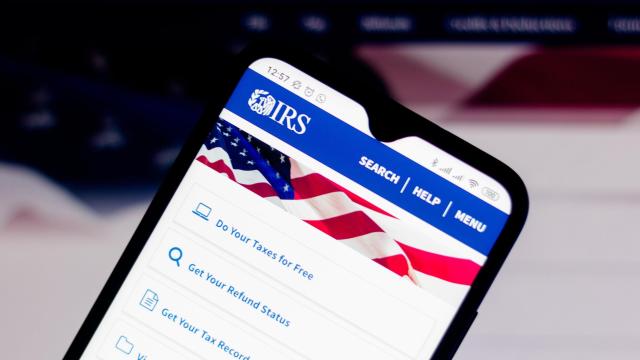In a major reversal, the Internal Revenue Service says it will transition away from using ID.me’s controversial facial recognition identity verification software following weeks of public controversy and criticism from privacy groups.
Starting this summer, the IRS had planned to require users attempting to access their IRS account online to submit facial recognition scans through ID.me’s third-party identity verification services. The IRS and ID.me claimed this process would have helped reduce fraud. ID.me meanwhile has come under renewed scrutiny after CEO Blake Hall admitted that, under some circumstances, the company does run user face scans against a database of faces, a fact they hadn’t made clear previously.
In the weeks since, civil liberty groups, privacy experts, and lawmakers have all called on the IRS to reevaluate its relationship with ID.me. The agency listened.
“The IRS takes taxpayer privacy and security seriously, and we understand the concerns that have been raised,” IRS Commissioner Chuck Rettig said in a statement. “Everyone should feel comfortable with how their personal information is secured, and we are quickly pursuing short-term options that do not involve facial recognition.”
The reversal comes less than one year after ID.me was awarded an $US86 ($119) million dollar contract from the Treasury Department. ID.me did not immediately respond to Gizmodo’s request for comment.
“Being forced to trust our most sensitive data to a government contractor to access our tax files is a hamfisted way to solve the IRS’s fraud problems while pushing the real risks to American citizens.” – @hackingbutlegal #facialrecognition #IRS
— S.T.O.P.—Surveillance Technology Oversight Project (@STOPSpyingNY) January 21, 2022
“We’re glad to see that grassroots activism and backlash from lawmakers and experts has forced the agency to back down,” Campaign Director at Fight for the Future Caitlin Seeley George said in an email to Gizmodo. “No one should be coerced into handing over their sensitive biometric information to the government in order to access essential services.”
The IRS’ reversal came just hours after Oregon Senator and Senate Finance Committee Chairman Ron Wyden wrote a letter to the IRS commissioner urging the IRS to end its use of facial recognition. In his letter, Wyden expressed concerns over the technology’s well-documented struggles to accurately identify women and people of colour and said it was, “unacceptable to force Americans to submit to scans using facial recognition technology as a condition of interacting with the government online.”
I’m very disturbed that Americans may have to submit to a facial recognition system, wait on hold for hours, or both, to access personal data on the IRS website. While e-filing returns remain unaffected, I’m pushing the IRS for greater transparency on this plan. https://t.co/8l7m2OiPOI
— Ron Wyden (@RonWyden) January 21, 2022
That statement piggybacked off another letter sent by Republican senators on the Finance Committee, who called on the IRS to end its relationship with ID.me.
“There is ample evidence to be very concerned about an IRS contractor’s ability to safely manage, collect and store this unprecedented level of confidential, personal data.” the senators wrote. “The decision millions of Americans are forced to make is to pay the toll of giving up their most personal information, biometric data, to an outside contractor or return to the era of a paper-driven bureaucracy where information moves slow, is inaccurate, and some would say is processed in ways incompatible with contemporary life.”
Now, according to Fight for the Future’s Seeley George, the focus may turn to other federal agencies and at least 30 states currently partnered with ID.me. “The lawmakers who led the charge against the IRS use of this technology should immediately call for an end to other agencies’ contracts, and there should be a full investigation into the Federal government’s use of facial recognition and how it came to spend taxpayer dollars contracting with a company as shady as ID.me,” the activist said.
